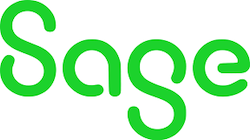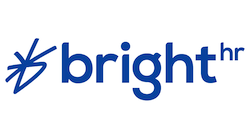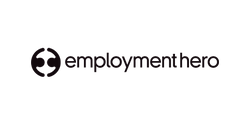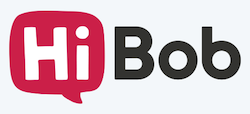The case for HR software tools has grown as more businesses shift towards a hybrid or remote working model.
Plus, having HR software tools in place can help to increase productivity, provide working insights, more benefits for employees.
An HR tool – also known as HR management tool – can mean a whole platform or it can be one component such as recruitment or absence management software.
Maciek Kubiak, head of people at PhotoAiD, simply uses a recruitment platform. “It is useful for conducting pre-employment tests for potential candidates,” he told Small Business. “It makes the recruitment process quicker and more effective. Plus, it is easy to use and permits to save time and focus on valuable applications, managing talent more efficiently.”
For the purposes of this article, we’ll be looking at platforms which provide multiple HR functions.
In this article we’ll cover:
>See also: A guide to outsourcing HR
Which HR software should I go for?
Before you make your decision, consider these factors for your employees and HR team and well as the business as a whole.
Pam Hinds, head of HR at RotaCloud, comments: “When it comes to choosing HR software tools for a small business, one of the main things you need to consider is – does it have all the features you need? This could be anything from absence and annual leave tracking to recruitment support or performance management tools. You don’t want to risk paying for a system that has lots of functionality that you won’t use, or a service that doesn’t do everything you need it to. So, it’s important to know the key features you need from your software, or problems you need to address, from the outset.
Once you’ve narrowed down a shortlist of software that has the features you require, Hinds highlights other key points to consider:
-
- Useability. How easy is it to set up and use? Will it take time for you and your team to learn it or can you jump straight in?
-
- Integrations. Does it integrate with the software and tools you already use? For instance, if you’re looking for time and attendance software, does it integrate with your payroll software?
-
- Security. Will you be storing important or sensitive information? How secure is the system?
-
- Customer service. Is it easy enough to get help should you have a problem?
-
- Scalability. How scalable is it? Is it easy to add or remove employees from the system as you grow, and is the price for doing this clear and transparent?
-
- Price. Is it within your budget?
Alper Yurder, general manager of Witco, advises to look for customisation, for features that are essential to your business and can grow with your business.
“You’re not just getting HR software tools for now, you’re getting tools for the business you want to be. It’s about future-proofing,” he told Small Business.
“The right software depends on the culture of your business too – and in some cases even the sector you operate. For example, if you’re in a highly regulated business such as healthcare or finance, certain tools might be a better fit than others.”
You’ll want to factor in the ethics of the software company you go with. “Make sure the values of your provider that you go with are in-line with the ethics of your own company,” said Yurder.
>See also: Top 10 HR tips
Should I use paid-for or free HR software?
Another important question you want to ask yourself is how much you want to pay or if you’d be willing to go for a ‘freemium’ product which comes with free features and extra costs for additional features.
Hinds points out that there are plenty of free or lower cost options on the market, depending on what your needs are. “However, there are often limits or caps with free systems, on things like number of users, amount of storage, the features you can use and access to support,” she said. “So, it’s important to look at what’s included, and excluded, in free versions of software to save you from getting set up and trained, then realising that a specific feature you need is in a paid tier.”
>See also: How to decide on HR policy for your small business
Cloud-based vs on-site server
Another point to consider is choosing between something that’s cloud-based or on an on-premises physical server.
“Cloud software is always available, and everyone can log into it, from anywhere,” Hinds told Small Business. “But with server-based software, you can often only access it from a set location, and if your server goes down, all your software goes down with it and remains inaccessible until it’s fixed.”
Cloud-based HR systems are popular because of the ease of access from virtually anywhere along and you don’t need a hefty on-site server to run it. However, some argue that having data saved on a physical server is more secure than saving it in the cloud, as there is restricted access, according to Hinds. “Which option is best for you may depend on the existing hardware and infrastructure set-up of your business.”
“More and more services are moving towards the cloud these days. There are more pros than cons,” said Yurder. “Cloud-based software is more agile – you benefit from product updates instantly. It’s also more secure, given that providers create infrastructure that you wouldn’t be able to create yourself.”
Best HR software tools for small businesses
As you’ve gathered, every small business has differing needs. We’ve listed some of the best HR software tools below, giving you a run-down key features and integrations that can work with your existing software. A lot of software providers offer largely similar services, but the core features listed are those on their most basic package.
Best for employee management
Sage HR is a comprehensive HR management software designed for small and medium-sized businesses. It streamlines recruitment, employee engagement, and talent management, offering tools for leave management, performance tracking, and employee database organisation.
With a user-friendly mobile app, customisable add-ons, and seamless integrations, Sage HR simplifies HR processes, saving time and reducing administrative burdens.
Key features:
- Leave management
- Employee database
- Mobile app
- Performance management
- Customisable add-ons
Pricing:
Core HR + Leave Management: £4.60 per employee/month
Optional Add-ons:
Performance Management: £2.30 per employee/month
Timesheets: £2.30 per employee/month
Shift Scheduling: £2.30 per employee/month
Expenses: £1.15 per employee/month
Recruitment: £170 per month
Sage HR offers a 30-day free trial.
Best for customisation

BreatheHR is a small UK-based HR provider.
It’s all built around the Core HR package, which has a staff holiday planner, sickness and absence tracking, performance management and an HR dashboard with tracking. It’s customisable, so you can add on modules. A free pro-rata holiday entitlement calculator is available on the website too.
Key features:
-
- Absence management
- Performance management
- Shift tracker
- Reporting
- Document storage
Integrations: API
Pricing
Core HR plan: £22 per month per account
Module add-ons
Rota, time and attendance: £10 per month
Recruitment: £21 per month
Expenses: £12 per month
Learn: £12 per business per month
A 14-day free trial is available.
Best for health and safety support
BrightHR combines health and safety, people management and more on a single platform tailored to simplify HR tasks for businesses of any size. Featuring cloud-based storage, employee tracking, payroll integration, and round-the-clock employment law support, BrightHR helps companies maintain compliance while minimising paperwork and administrative burdens.
Key features:
- Leave management
- Time management
- Attendance tracking
- Cloud storage
- Payroll integration
Pricing depends on number of employees. The below is for two to 10. For example, if you have 11-15 employees, it goes down to £10.40 per employee for the core HR platform:
Core HR software: From £11.20 per employee per month
Enhanced HR support: From £21.20 per employee per month
Full HR, health and safety and EAP: From £28.20 per employee per month.
Best for AI support
Employment Hero’s AI-powered platform allows you to manage hiring, HR, payroll, and employee engagement all in one place. You get an allocated payroll partner who can support with pay calculations and compliance, and an AI hiring tool that helps you discover the best candidates for your business. You can also access employment law support from professional UK advisors.
Key features:
- AI-powered automation
- Virtual assistant
- Time and attendance tracking
- SmartMatch hiring
- Data and reporting
Plans:
Lite: Basic features (prices on request)
Plus: Enhanced features (prices on request)
Unlimited: Most comprehensive range of features (prices on request)
Contact Employment Hero to try a demo of the software.
Best for employee engagement
HiBob, commonly known as Bob, is a next-generation HR platform designed to improve productivity, engagement, and retention for your small business. The platform simplifies all yourkey HR functions, with automated workflows, people analytics, document management, and more, enabling companies to streamline operations effortlessly.
Key features:
- Core HR & people analytics
- Automated workflows
- Social engagement and recognition
- Hybrid work management
- Integration capabilities
Pricing:
Enquire for custom pricing.
Best for growing businesses
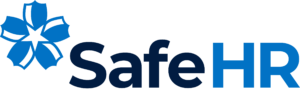
Safe HR has been designed for small and growing businesses, with holiday, sickness and pay management features that help make your life easier when your team is growing rapidly.
You can access employee records instantly on any device, easily approve holidays, and integrate with leading accounting software for simple payroll, all the while safe in the knowledge that you’re complying with GDPR.
SafeHR also warns you if Right to Work documents are about to expire, and can even alert you to any changes in minimum wage or National Living Wage you need to be aware of.
As well as software, SafeHR has its own in-house legal team and a personalised HR support service that’s on hand to guide you through trickier or more complex issues.
Key features:
- Automatic GDPR compliance
- Staff holiday calendars and easy request approval
- Right to Work and wage legislation warnings
- Accounting software integrations
- Record working time and absences
- Manage expenses
- Performance management
Integrations: Xero, Outlook, Google calendar, Cyber Essentials, QuickBooks Online, Comma, PensionSync and Slack
Pricing:
HR Software-Only: £3.50 per employee per month, £25 minimum (add payroll for £1 per payslip)
HR support service: £10.00 per employee per month plus £60 flat fee (add payroll for £1 per payslip)
Recruitment software:
£15 per month for up to 5 live vacancies
£25 per month for 6-10 live vacancies
£40 per month for 11+ live vacancies
Best for recruitment

You’ve probably come across Monday.com before. This platform gives you the ability to manage several different functions on top of HR such as software development, marketing and project management.
With the recruitment pipeline, it’s easy to track where each candidate is in the hiring process. Various HR templates are available for your current employees and they’re customisable – you’ve got a recruitment tracker, attendance tracker, holiday tracker, feedback tracker and an employee info template.
If you’re a newer business, there are lots of helpful articles on the website to help you with HR and other areas of your small business.
Key features
- Recruitment
- Onboarding
- Employee wellbeing modules
- Training and development
- Performance management
Integrations: Teams, Gmail, LinkedIn, Slack, Adobe Creative Cloud and more.
Pricing (per month, billed annually)
Individual (up to two seats): £0
Basic (per seat per month): £8
Standard (per seat per month): £11
Pro (per seat per month): £17
Enterprise: Bespoke
Best for security
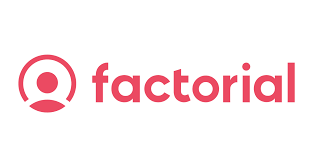
Factorial HR is big on security. It has data security and firewall along with single sign on so you don’t need to create a username and password. Set custom folders and assign permissions to different employees. Plus, you can safely store sensitive information like medical leave documents and contracts, enabling digital signatures for extra security.
As for performance management, you’ve got personalised questionnaires where employees can leave feedback. The time tracking app lets you track wage compliance and management as well as approve employee time sheets and reject extra hours. Automate and personalise onboarding and offboarding to make the process smoother.
An app is available for employees on App Store and Google Play.
Key features:
- Document management
- Performance reviews
- Reporting
- Onboarding
- Employee self-service
- Absence management
- Time tracking
Integrations: Gmail, Outlook, Slack, Zapier, API
Pricing
Business: £5.40 a month per employee per month
Enterprise (includes facial recognition, automated processes with custom workflows, document creation and more): bespoke
Recruitment add-ons
Basic (up to ten job offers): £39 per month
Pro (unlimited job offers): £109 per month
Best for businesses with no HR team
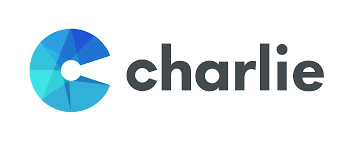
CharlieHR has a lot of ‘self-serve’ features so that your employees can see to their own admin. They can also choose the right perks for them. Plus, they’re quick and easy to roll out. Perks come free with Charlie subscription, with over 30,000 deals and discounts available.
Create engagement surveys so that your team can give regular feedback including light-touch micro polls that guarantee engagement. Results are anonymous to improve honesty.
Custom onboarding forms can be filled out by the new starter – and it’s all legally compliant. Follow onboarding checklists so that new employees can get support from the right people. Offboarding is just as straightforward as the offboarding checklist makes sure that everything’s covered before the employees leave.
Key features:
- Employee self-service
- Employee perks
- Employee surveys
- Onboarding and offboarding
- Reporting
- Absence management
Integrations: Pento, Workable, Xero
Pricing
CharlieHR: From £20 per month (1-4 team members).
Add-ons:
Charlie Concierge: From £20 per month
Charlie Recruit: From £55 per month
Charlie Advice: From £179 per month
There’s a week’s free trial on all packages.
Best for affordability

Zoho People is a good shout for businesses that also use Zoho software, such as the CRM. It also works for businesses with grand growth plans. Employee database management with a cloud-based employee database management system mean you can scale as your company grows.
Documents are stored in a classified central vault including policy documents, company handbook and leave policies. Reprimands, offer letters and appraisals can too be stored in here with increased privacy. For extra security, there are customisable e-signature workflows.
Zoho People works in a variety of languages: French, German, Dutch, Swedish, Portuguese, Italian, Korean, Spanish and more. Perfect for international teams.
Key features:
- Employee database management
- Document management
- Absence management
- Reporting
- Employee self-service
Integrations: Other Zoho applications (such as CRM, Analytics, Projects), Zapier, Google Calendar, Docusign, Microsoft
Pricing (per user per month)
Essential HR: 83p
Professional: £1.50
Premium: £2.50
Enterprise: £4
People Plus: From £3.20
Add-ons
Employee profiles: Start at 25p per person per month
Zoho Recruit (corporate version): £480 per recruiter per year
Learning management system: £14.40 per user per year
A 30-day free trial is available on all packages.
A ‘Forever free’ service is another option for businesses which have up to five users. It’s a simplified version with absence management and an employee database.
Best for employees

Staffology, as its name suggests, is designed with staff in mind. It’s great for businesses which have staff who work variable hours as there is a customisable work patterns function for part-time or flexible workers.
Staff can manage their expenses too. The expenses management module means staff can submit and manage their own expenses, which can be submitted from anywhere. You as an employer can run reports into how much each department is spending in order to locate areas of high spend. Build up your HR by using other modules including recruitment, training and performance.
Key features:
- Absence management
- Employee database
- Reporting
Integrations: Payroll software
Pricing (per employee per month)
Foundation: £7 per month
Essential: £20 per month
Professional: £39 per month
Ultimate: £59 per month
Next steps
Sometimes it’s a case of trying HR software out to get a feel for different tools. Make use of those trial periods where you can!
And if you’re ready to invest in a solution, we can help you find the best platform.
Simply fill in our free quote-finding form, and answer a few questions about your business (it takes less than a minute). We’ll match you with the most appropriate HR support and software provider.
Further Resources
Anna Jordan
Anna is Senior Reporter, covering topics affecting SMEs such as grant funding, managing employees and the day-to-day running of a business. More by Anna Jordan
